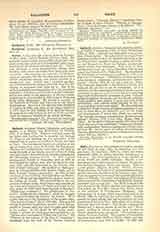

Galland, ANTOINE, French Orientalist and numismatist, b. at Rollot, near Montdidier, in Picardy, 1646, d. at Paris, 1715. When he was four years old his father died leaving him in poverty, but through his diligence and industry he won protection which enabled him to pursue his studies at Noyon and later at Paris. He was already known as a scholar at the age of twenty-four, when de Nointel, the French ambassador at Constantinople, took him to the East to study the faith of the Greeks, several articles of which were the subject of a controversy between Arnault and the Protestant minister Claude. In 1675 Galland accompanied Nointel to Jerusalem, and, in 1679 he was charged by Colbert, and, after his death by Louvois, with scientific researches in the Levant, with title of king’s antiquary. He profited by these journeys to become familiar with modern Greek, and to learn Turkish, Persian, and Arabic. In 1701 he was admitted to the Academy of Inscriptions and Medals, and in 1709 he was appointed to the chair of Arabic at the College de France. We are indebted to him for numerous letters, notes, observations and remarks on the coins and inscriptions of Greek and Latin antiquity, many of which have been inserted in Banduri’s “Bibliotheca nummaria”. He collaborated in Herbelot’s “Bihliotheque Orientale”, which he brought to a conclusion after the death of its author. He is chiefly famous for his translation of the eastern tales, “The Arabian Nights” (Paris, 1704-08). This graceful though inaccurate translation, the first which had appeared in Europe until that time, brought great fame to its author. At his death he left many manuscripts, a number of which have been published, e.g. “Indian tales and fables of Pidpai and Lokinan”; the “History of the princes of the line of Tamerlane”, translated from the work of the Persian historian Abdel-rezzac; “Ottoman History”, translated from the Turkish of Nairn Effendi; “History of Ghengis-Khan”, from the Persian history of Nurkhoud; “Numismatic Dictionary”, etc.
A. FOURNET

